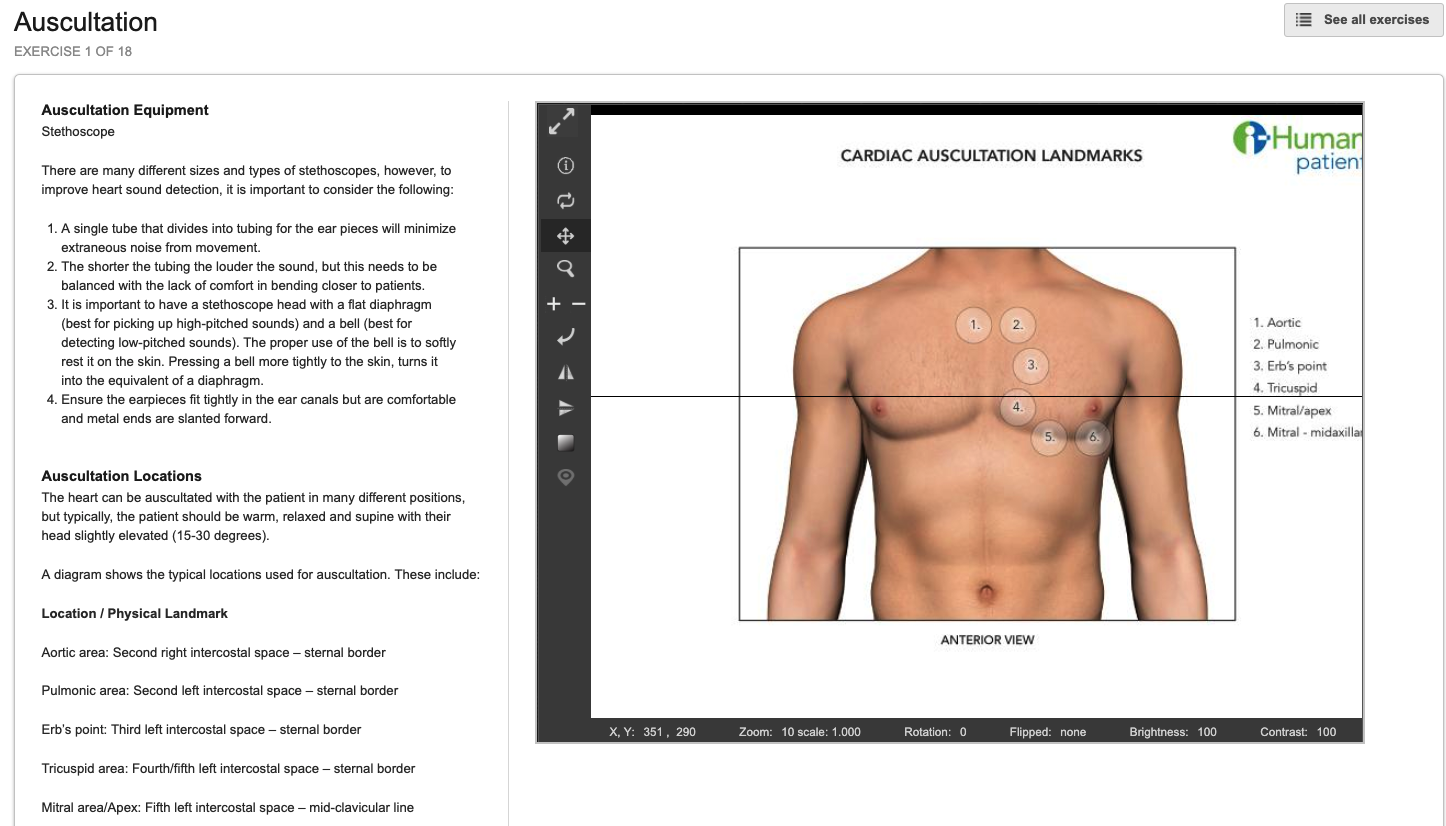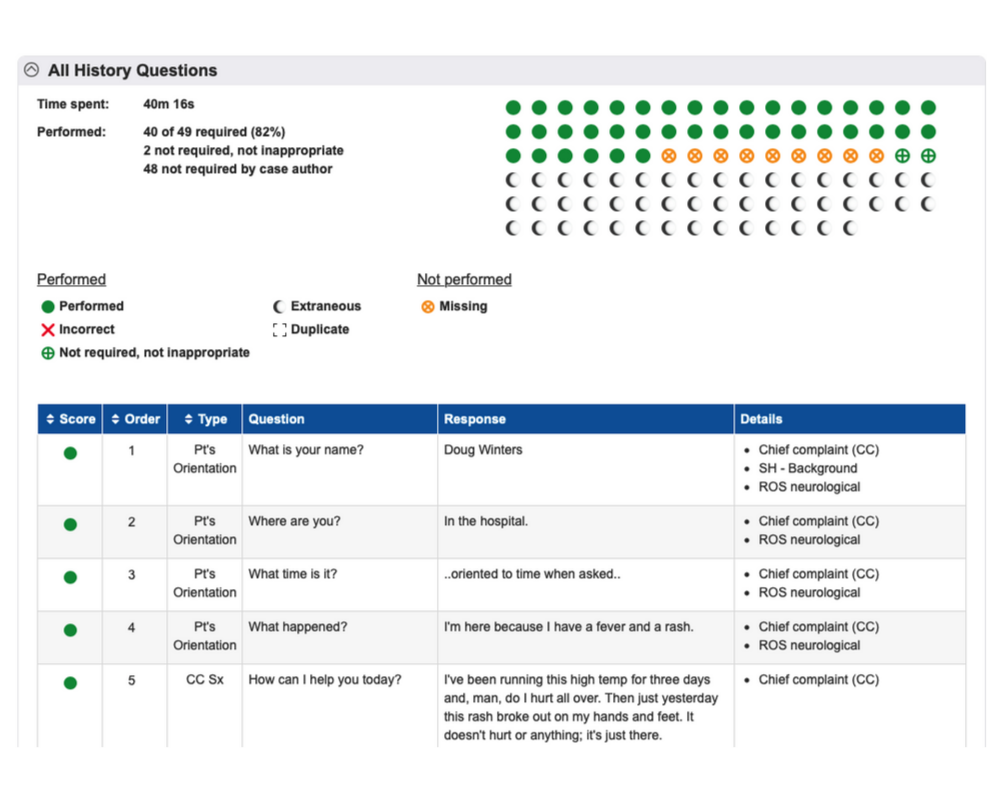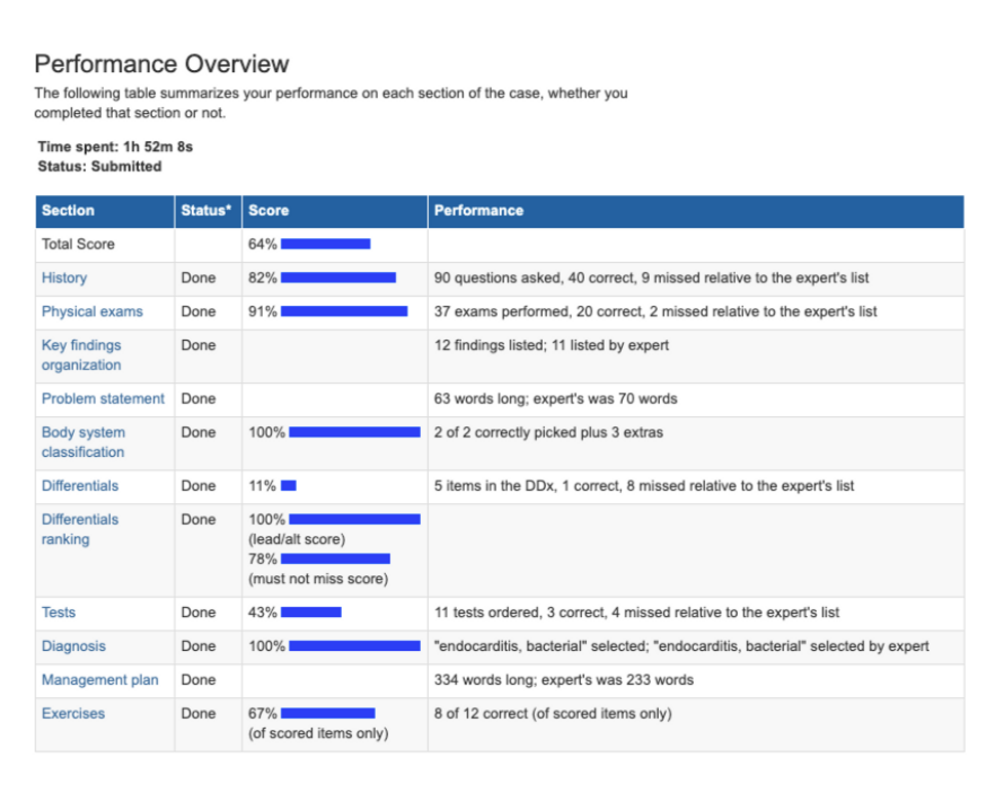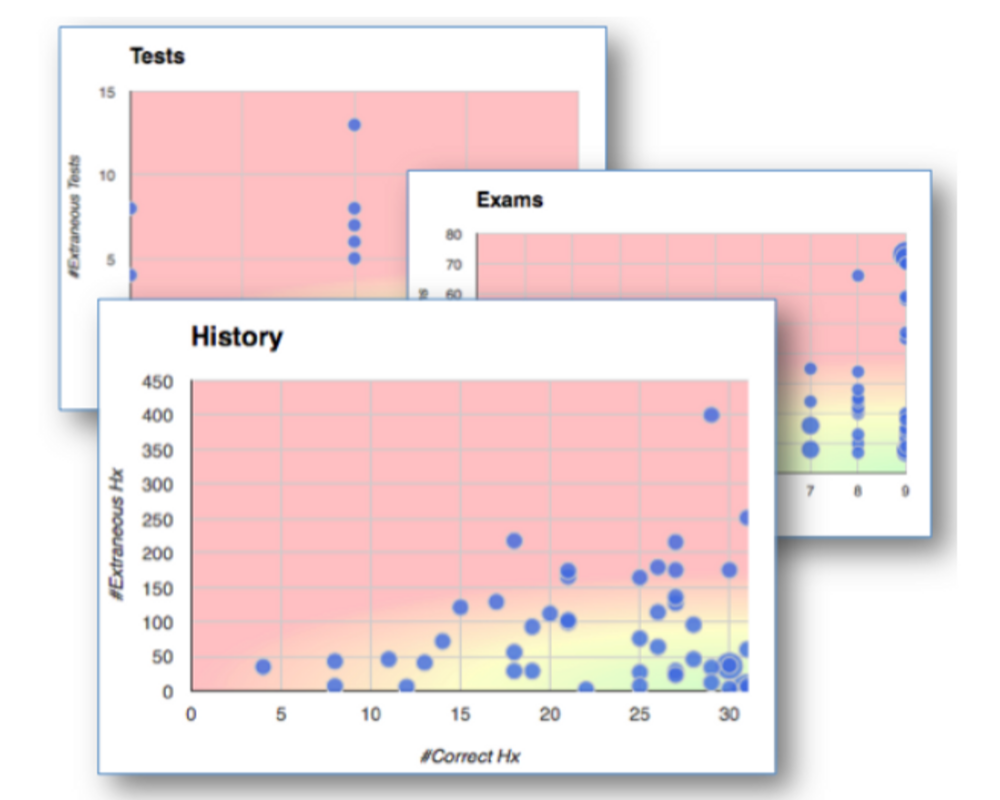Learn more about the uses and benefits of virtual simulation in graduate nursing education on the Kaplan Nursing Blog.
Virtual Patient Encounters
Students interact with virtual patients in a comprehensive encounter from history to diagnosis to management plans
- Over 350 graduate cases
- 12 OSCE cases
- Over 230 patient “avatars”
- Participating avatars including mothers for pediatric patients, spouses for adult patients, etc
- Wide range of ages and demographics
- Specialty cases including OB, Peds, surgical, rehab, and mental health
Standardized cases allow for objective, consistent grading across students and instructors
Auto-scoring provides immediate feedback and saves hours of grading time for faculty
24/7 availability on laptops and tablets wherever an internet connection is available
Scaffold Clinical Encounters Throughout Your Curriculum
i-Human Patients cases have 7 different configurations to fit the level of the learner. Here is an example of how some of our partner schools have configured cases to match the topics covered in the first year and then builds on that for the second year:
Sample First Year Use Case
Here’s a look at the steps your first year students might encounter as they interact with i-Human Patients:
- Take a patient history
- Complete a physical
- Select a differential diagnosis list
- Rank the diagnoses
- Order tests and review results
- Select a definitive diagnosis
- Write SOAP note or management plan
Sample Second Year Use Case
Second year students can dive deeper into the encounter, taking control of more aspects of the patient experience including:
- Extracting pertinent information from a chart
- Developing a differential
- Ordering and reviewing tests
- Selecting a final diagnosis
- Developing a management plan
Organized Structured Clinical Encounters (OSCEs)
Substitute or supplement your standardized patient encounters with virtual simulation.
Featuring 12 cases to use as a formative learning experience or true competency assessment in preparation for clinicals or the Step 2 CS Exam.
- Increase efficiency and reduce costs: Minimize scheduling headaches and reduce costs when your SPs are virtual patients who are available with consistent symptoms 24/7.
- Save time by eliminating scoring: i-Human Patients auto-scores each encounter, freeing up hours of faculty time.
- Truly “standardize” your SP encounters: Use i-Human cases as the basis for your SP encounters to train and educate clinical staff, provide “cheat sheets” for responses, and ensure your students are working from the same set of conditions.
Integrated Learning
Use i-Human Patients to help students understand where their classroom learnings apply to patient encounters.
- Lessons – Provide students with access to lessons from our library to review clinical procedures like how to take a history.
- Exercises – Allow students to dive deep into a topic (like how to perform a heart auscultation) within an appropriate case with an embedded exercise.
- Quizzes – Ensure that students have fully comprehended the topics and lessons with integrated quizzes.


Rich Multimedia Library
Cases and lessons are supported with a rich media library including:
- High-res up to 40x magnification real medical images
- Instructional and procedure videos
- Real patient sounds such as lung and Proctor Harvey heart auscultations, different coughs, pulses, breathing, and more.
Robust Tracking and Reporting

Auto-Scoring and Analytics
We track every keystroke to provide faculty and students with detailed performance stats.
Auto-scoring saves time for faculty. Students will automatically be graded and see what they did right or wrong, as well as what they missed.

Individual Performance
Students and faculty can drill down to view detailed performance information.

Group and Cohort Performance
Faculty can assess common areas of proficiency and deficiency across groups and cohorts.
Request a Demo
Learn How i-Human Patients can help you build diagnostic competency and clinical judgment skills in students. Enter your details below and our local program director will be in touch: